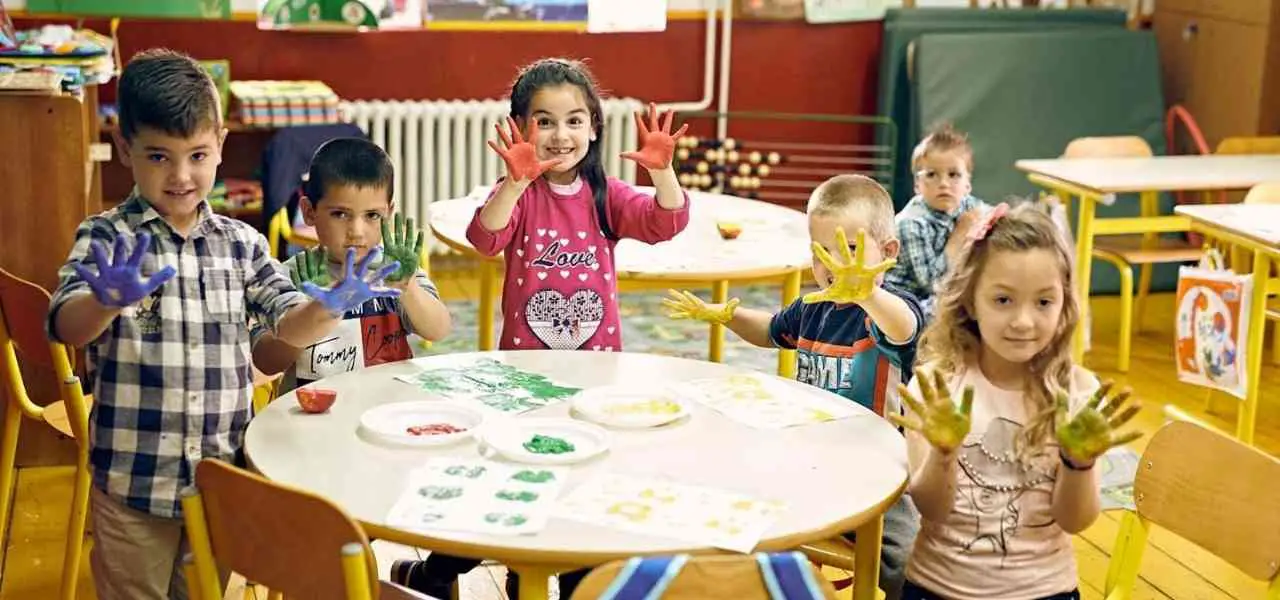
Wondering if your child is ready for the big step of going into kindergarten can be a common worry among parents. It’s such an important and exciting time in their life!
As a parent of two, I know firsthand how much these next few years matter- so don’t second guess yourself or put off thinking about it just yet; there might not ever come another chance like this one again (and you really want them to enjoy themselves).
The questions, “How do I know if my child is ready for kindergarten?” and “What does my child need to know before going into first grade?” are common among parents.
These inquiries can be complex because there’s no universal answer or set of skills that will magically make your kids ready.
But don’t worry—I’ve compiled a kindergarten readiness checklist below with some ways you might want to consider answering these tough lessons early in life, so they’re not such big surprises later down the road.
Is Your Child Ready for Kindergarten?
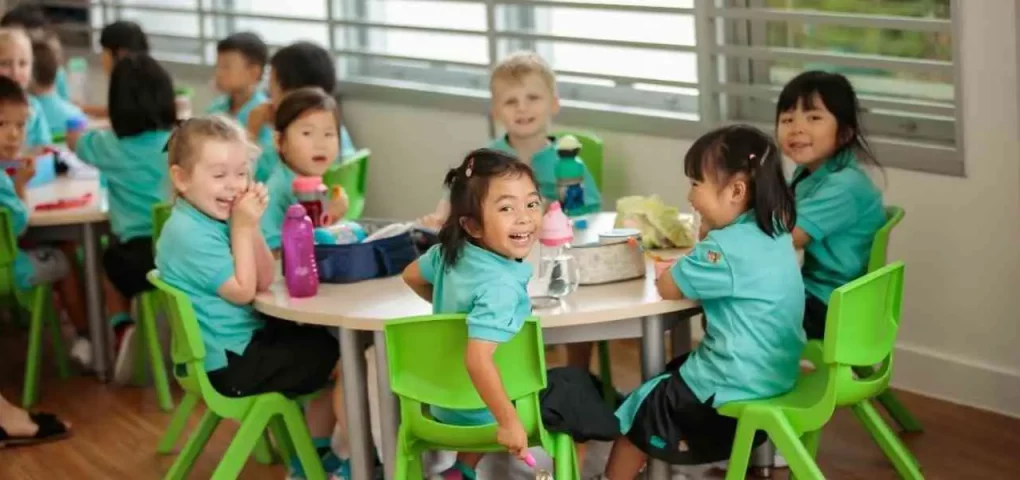
One of the best ways to determine whether or not your child is ready for kindergarten is to look at their developmental stage.
According to the American Academy of Pediatrics (AAP), there are specific abilities kids should have developed by the time they enter kindergarten.
This includes being able to:
- Follow simple directions and understand what they are asked to do
- Handle transitions and changes in routine
- Stay on task with a given activity for a reasonable amount of time
- Express themselves verbally, using complete sentences
- Name everyday items in their environment
- Demonstrate basic counting skills and an understanding of numbers up to 10
- Recognize some actual letters of the alphabet
- Have a general sense of spatial relationships and concepts such as in, on, over, under, and behind
- Identify colors, shapes, and textures
These are appropriate benchmarks for development at different ages. Keep an eye out for when your child gets closer to these milestones.
For example, if your child can count to 10 but not 20, that’s okay! They will eventually get there. Just be sure to keep practicing counting with them to become more natural.
The great news is that you don’t have to be a parenting expert to help boost your child’s readiness for kindergarten; you need to be actively involved in their lives.
Preparing for this Major Transition?
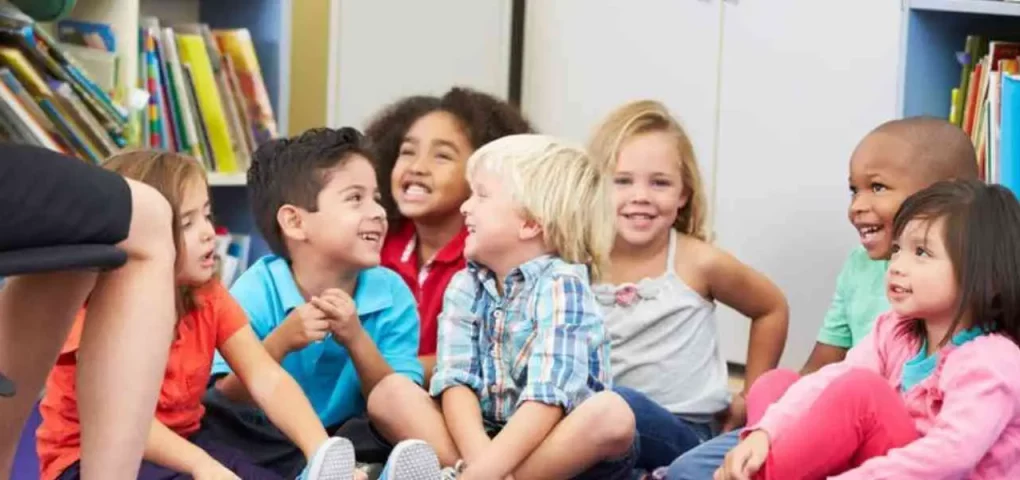
Here are some tips on how to help your child get ready for this big step:
- Read stories together or familiar nursery rhymes and discuss what’s happening in the plot to help improve their language skills.
- Play counting games and simple puzzles to help with their math skills.
- Draw shapes and letters together to help build their fine motor skills.
- Make name tags together to know where to put their names when they start school. This will help with developing solid skills.
- Have them try doing the laundry, unloading groceries, or setting the table for meals. Cooking simple meals is also great practice.
This will make them feel more independent and prepare them for the responsibilities of being in a classroom. The most important thing to remember is that every child is different and will develop at their own pace.
If you’re still unsure if your child is ready for kindergarten, don’t hesitate to speak with their teacher or school administrator. They will be more than happy to help guide you.
Kindergarten Readiness Checklist
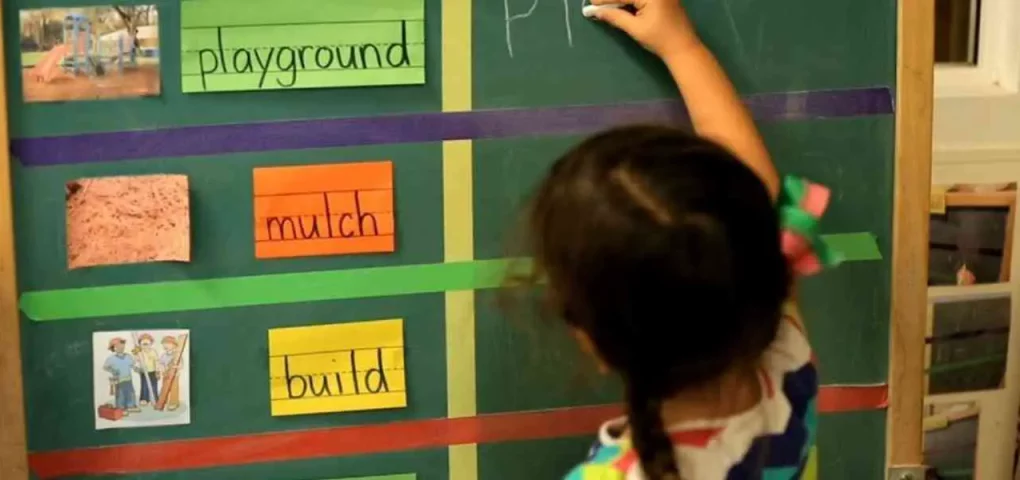
Kindergarten Language skills (using complete sentences)
In the first few years of life, kids learn to speak and communicate with others. They learn about basic shapes, colors, and numbers.
Through playtime activities such as dressing up in costumes or playing house – they’re also exploring their identity by trying out different roles for themselves (for example: “I’m a parent”).
This type of living boosts self-confidence while developing skills that will help them succeed later on when going through school work independently.
Language skills speak to a child’s ability to listen attentively, follow directions and express themselves using complete sentences.
Kindergarten Language skills are developed through reading stories, socializing with friends, or engaging in role-playing.
These activities help kids become comfortable communicating with others, whether verbally or written.
Kindergarten Social Skills
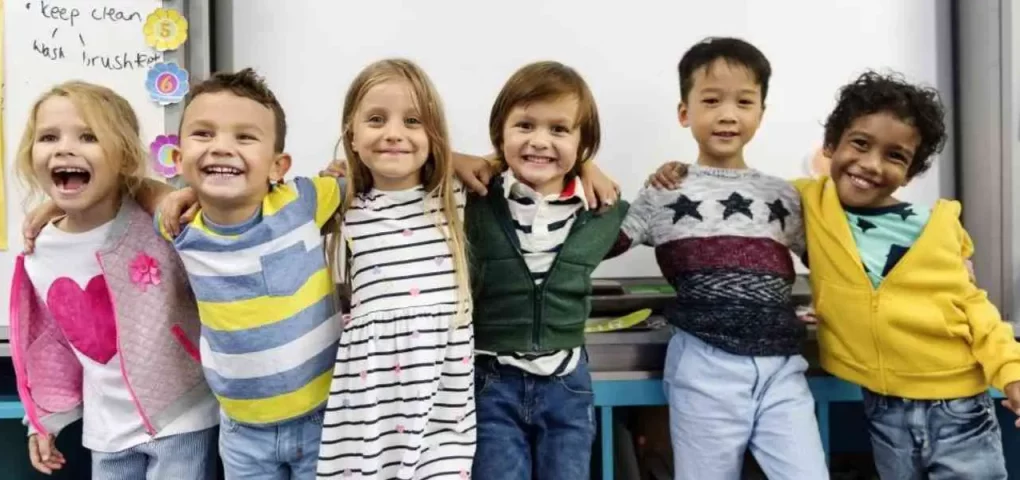
Entering kindergarten is a big step – for both the child and the parents. It’s usually the first time a child will be away from home for an extended time.
As a result, Kindergartners need to have strong social skills to develop lasting friendships and feel comfortable in their surroundings. Kids are also introduced to routines and transitions at this age, which will help them adjust easier in the long run.
Social skills are essential when entering kindergarten, as they will help the child make friends and feel comfortable in their new surroundings.
Kindergartners usually have a transition period during which they get used to the new schedule, meet their teachers, and learn the school’s rules. It’s essential that they feel supported through this time.
Boost self-confidence
This can be a big step up from preschool! Kindergartners are expected to know the basics of the alphabet, write their names, and do simple math.
However, they shouldn’t feel too much pressure about it – nobody expects a kindergartner to become a genius overnight!
Having self-confidence is one of the most important things for a kindergartner. It will help them feel overwhelmed or frustrated and give them the strength to continue trying, even if they don’t succeed at first.
Here are a few things you can do to help boost your child’s self-confidence:
- Compliment them on their strengths and accomplishments, big or small.
- Encourage them to talk about their feelings and make them happy/sad/angry.
- Let them know that failure is okay, as long as they keep trying.
Kindergarten Math Skills
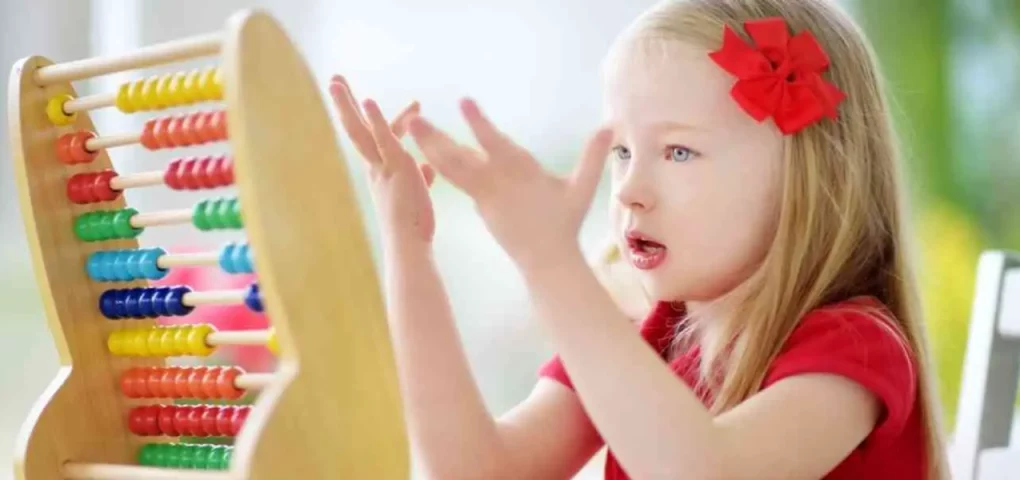
Math is an integral part of everyone’s life. Numbers, basic shapes – even time – all have a place in our daily routines. Practicing numbers with your child is an easy way to help get them familiar with the concepts of numbers.
It also helps boost their basic counting skills, including number recognition (1-10), fine motor skills (i.e., cutting), problem-solving and following directions. The more they practice basic math, the better their brain gets at it – making it easier to enter school.
Here are a few things you can do to increase your Kindergarten Math Skills:
- Help your kids understand numerical concepts quickly and easily.
- Children develop their math skills and reinforce their understanding of counting by playing basic counting games. For instance, you can say, “What comes after three?” or “Which number is bigger, 3 or 4?”
- Create different simple math equations with your kids, such as 2+2=4. Allow them to solve the problem and enjoy the successful feeling that accompanies it (and let them know that this feeling will happen often!)
Kindergarten Reading Skills
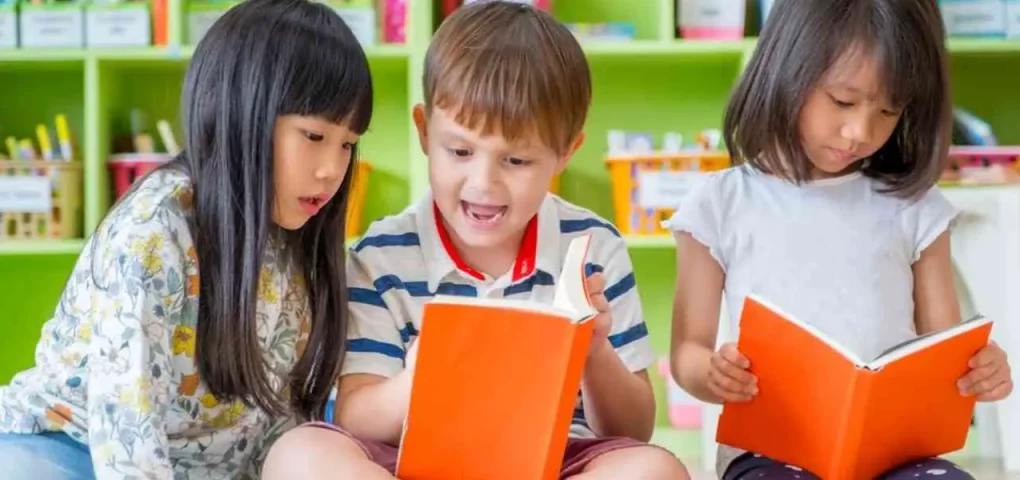
It’s never too early to learn how to read. It actually can be pretty fun!
The earlier kids are introduced to rhyming words, books, and poems – the better they’ll communicate with others later on in life. Other children are excellent teachers too, and they can create a stimulating and supportive learning environment for your kid.
You don’t need expensive toys or fancy programs, either. The best ways to foster reading are gathering educational toys, having your child read to you daily, and joining in their playtime.
Kindergarten Self-care Skills
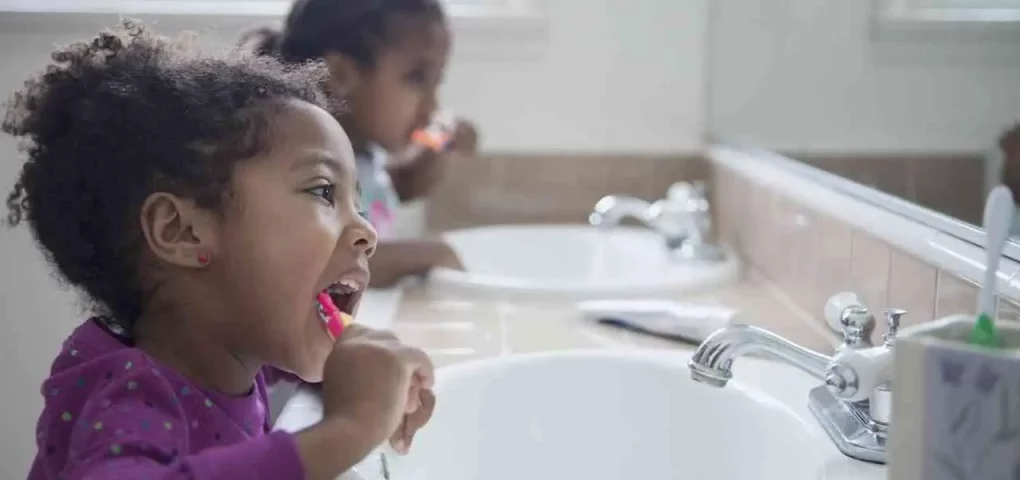
One of the most important things kids learn in kindergarten is how to take care of themselves. This includes bathing, brushing teeth and hair, getting dressed, and eating healthy foods.
These life skills help set the foundation for adults and manage their own lives. It’s never too early to start! Self-care skills are essential in development during kindergarten, as it helps children become accountable for their own body.
Practicing taking care of themselves will help kids gain independence and take responsibility when needed.
Kindergarten Emotional Skills
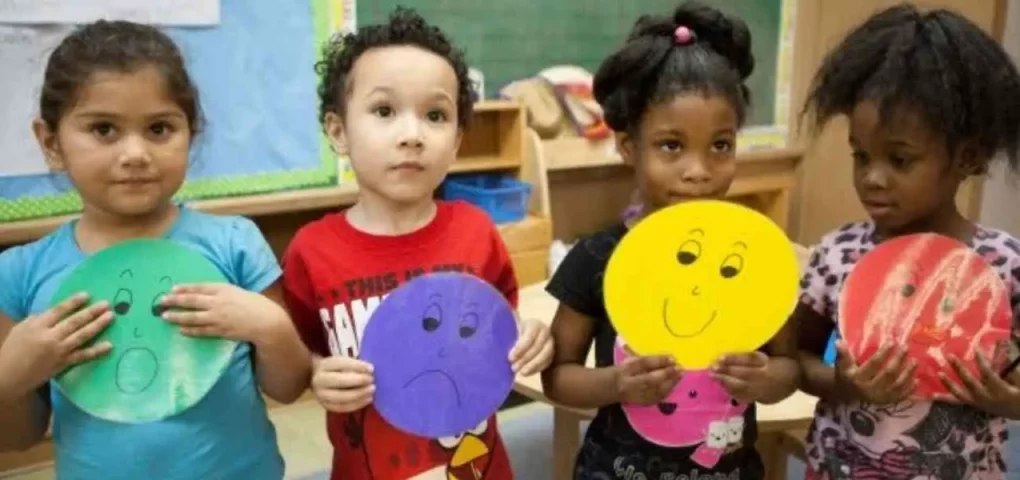
It’s not uncommon for children to have emotional outbursts at some point. Whether they’re happy, angry, or sad, learning to deal with emotions is an integral part of growing up.
Emotional skills separate preschoolers from kindergarteners. It’s never too early to help your child identify their feelings and encourage them to talk about what’s making them upset or angry.
Kindergarten readiness isn’t just about having the skills to do well in school. It’s also about feeling confident and comfortable when stepping into that new environment. With the proper guidance, support, and skills, your child will be well on their way to successful academic skills.
Kindergarten Fine Motor Skills
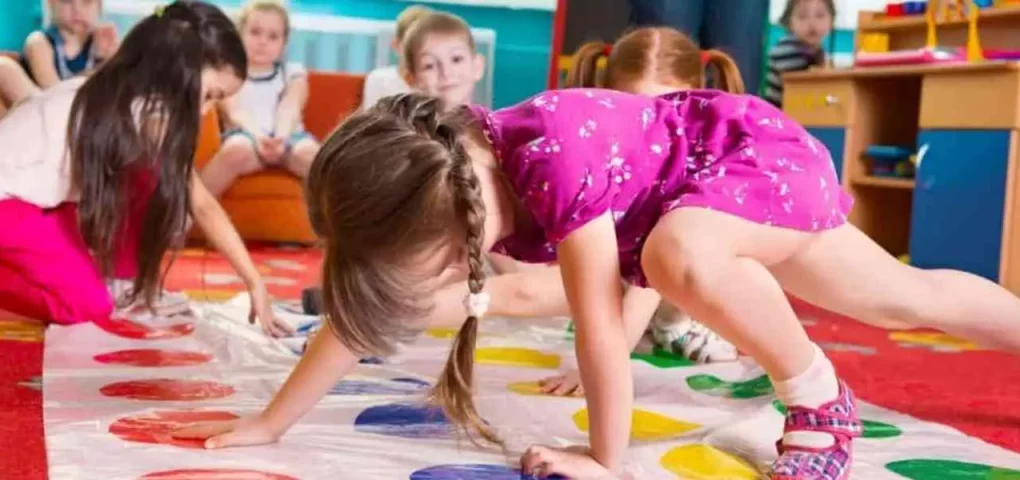
Children need to practice their gross motor skills, as well. Kindergartners are learning the basics of running, jumping, and hopping – helping build leg strength so they can last through an entire day of physical education class.
Learning how to navigate in different environments (e.g., climbing stairs, walking on uneven surfaces) will help them go out into the world independently when they’re older.
Last Thoughts
Kindergarteners are learning how to communicate, read and write. They’re also developing their fine motor skills to succeed when they start primary school.
If you want your child to have a headstart on future success, it’s never too early for them to learn about emotional control and basic life skills that will help with social interactions at any stage of development.
Kids should create independence and responsibility while building up their self-confidence. The more parents can teach these vital preschool lessons now, the better off their kids will be later on in life!
———-
Enjoyed this article? Share it with the other mommas out there too! And don’t forget to check out our other posts on the blog.





Leave a Reply